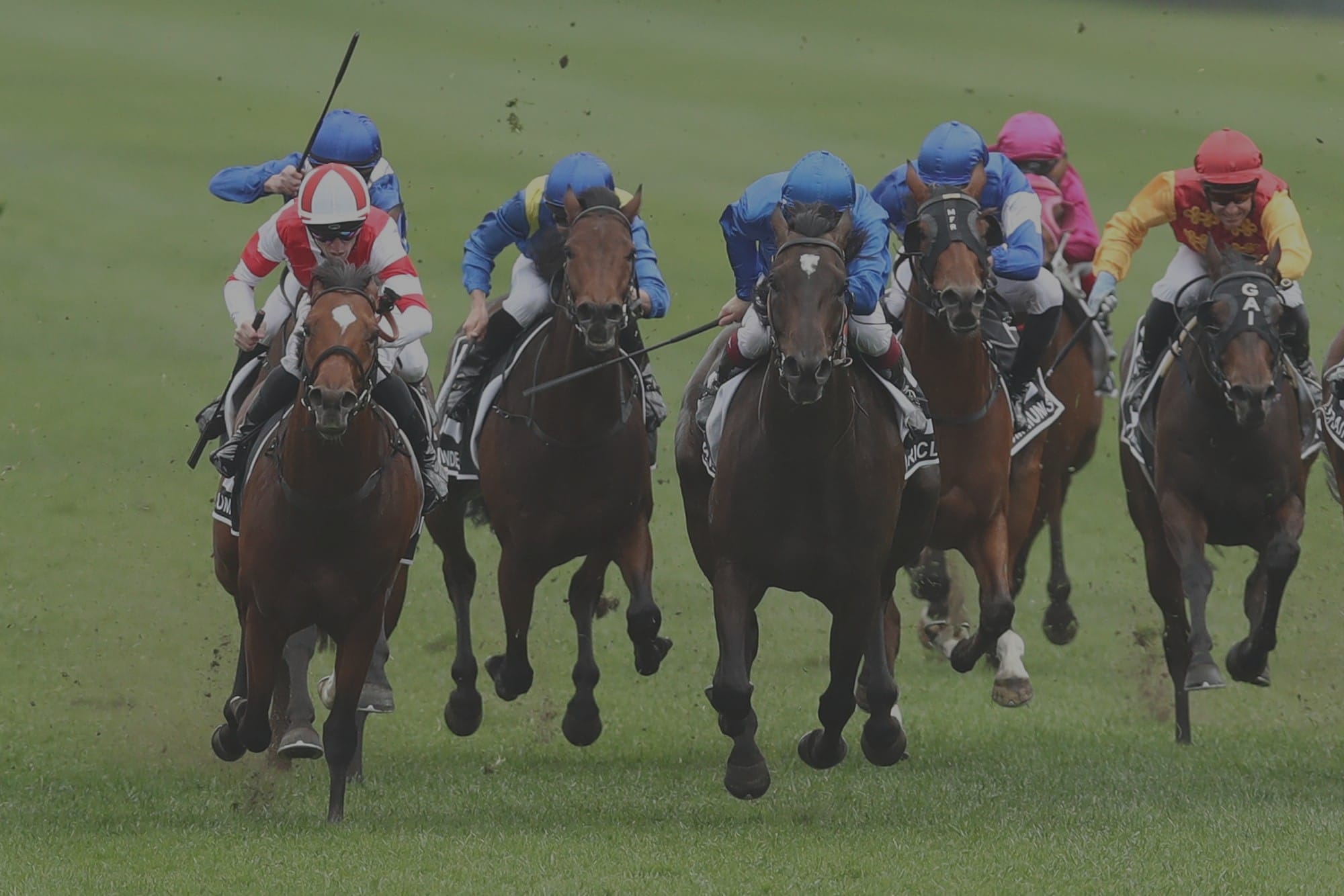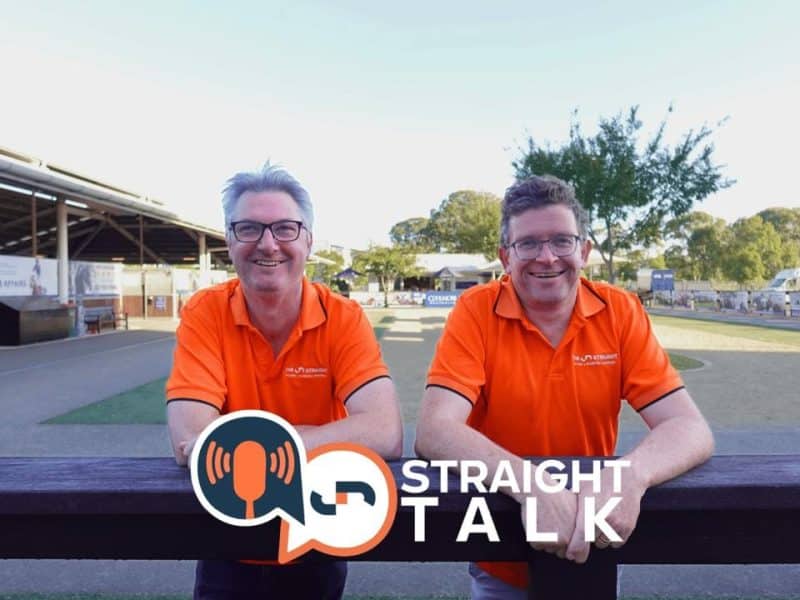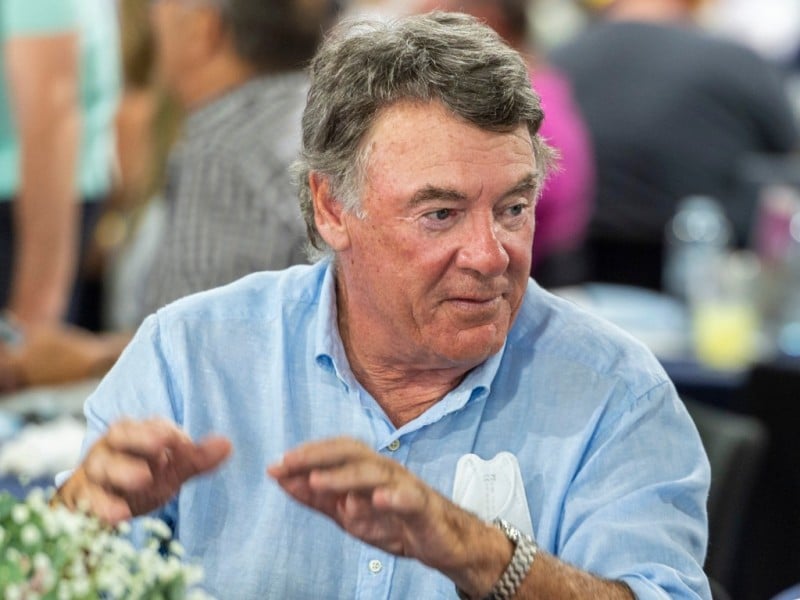Making the Tote great again: Scott pushes national pool as key to parimutuel renaissance
Discussions between the racing industry and Tabcorp over the establishment of a national tote pool are progressing, with Racing Queensland CEO Jason Scott saying he sees an important role for parimutuel betting in bringing the big professional punters back into Australian racing.
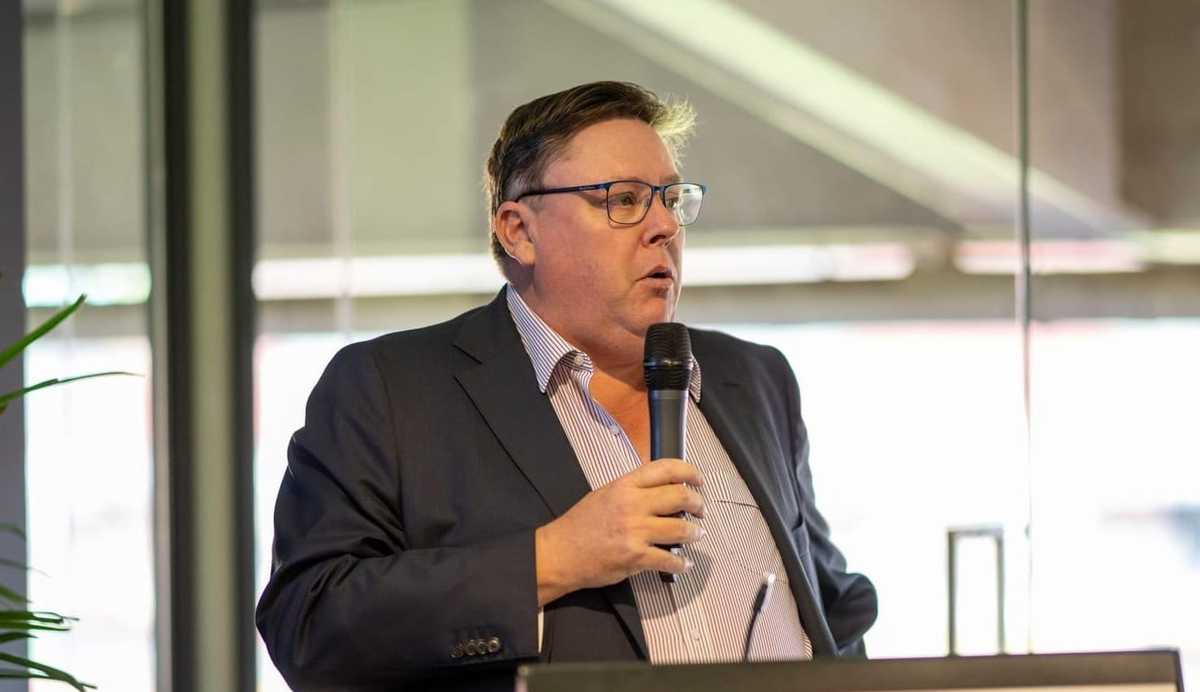
Tote pools have been collapsing in Australia for a number of years and a recent article in The Straight pointed to the decline of the influence of parimutuel betting from 85 per cent in 2001 to just 16 per cent now.
At the recent Asian Racing Conference in Sapporo, Scott highlighted the opportunities that still exist with the Tote, especially with increased pricing flexibilities and a singular approach.
Scott, who has a significant background working in the wagering industry, revisited and elaborated those comments on SEN Track’s Giddy Up segment, The Wednesday Debate, with Gareth Hall as well as The Straight’s Bren O’Brien on Wednesday.
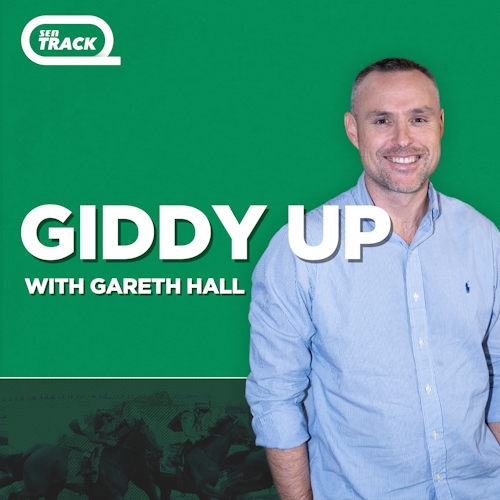
He revealed discussions with Tabcorp about merging the three Australian tote pools into one were quite advanced.
“I got a long way down the track with Adam Rytenskild (former Tabcorp CEO) of getting Queensland and the old Unitab pool put in,” Scott told SEN Track.
“Now we’re moving very quickly with Paul Carew, the chief operating officer at TAB. Gil (McLachlan – new CEO) has come in and we’re now speaking to the chief operating officer … to move the top pools into the Victorian pool. And from there, I think it’s a no-brainer, we’re moving into New South Wales.”
“I mean, in the end, that’s Gil’s decision and Peter’s (V’landys) decision and because New South Wales will certainly have a say in it. But there’s a huge value.”
Scott, who also spent considerable time working for the world’s biggest betting syndicate, Humbleton, run by leviathan Australian gamblers Zeljko Ranogajec and David Walsh, sees immediate upside in the greater liquidity and possible price flexibility a merged tote could create.
“I did eight years with the biggest syndicate in the country, Zeljko’s Syndicate. I still speak to those guys, they’re desperate, they’re telling me that if they could bet into one tote with the liquidity, they might bet two or three times what they’re currently turning over,” Scott said.
“Once they start betting, the other syndicates, (Dr) Nick might come back and all these other people that we’ve lost because they can’t get on. And then once that happens, you’ll see that some of the run-of-the-mill punters will be more comfortable with betting totes. So it’s an absolute no-brainer”.
Scott said that 60 per cent of parimutuel pools on what was Unitab have less than $500 in them and that was making them irrelevant.
“Admittedly, most of those are exotics, but someone can’t go and put $30 into a trifecta without completely changing the result. So that’s a problem,” he said.
While much of the talk at the Asian Racing Conference was about the primacy of the World Pool model, Scott pointed out that the takeout rates of that product were even greater than it is in Australia.
He said a variation in takeout rates was the best way to determine if the parimutuel product could be re-invigorated.
“I didn’t make any friends over in Japan with that. But we don’t necessarily have to change it, we need to experiment. We need to understand where the maximum point of elasticity is,” he said.
“My gut feel is if we reduce it, if you reduce it and then you reduce it by 3 per cent, but increase it by, or reduce the take by 30 per cent, but you increase the amount best by 50 per cent, well, that’s net profit.”
“We don’t know, we’ve had this number sitting here since 1968 or 66 or whenever the tote came into existence. We need to understand where the maximum amount is.”
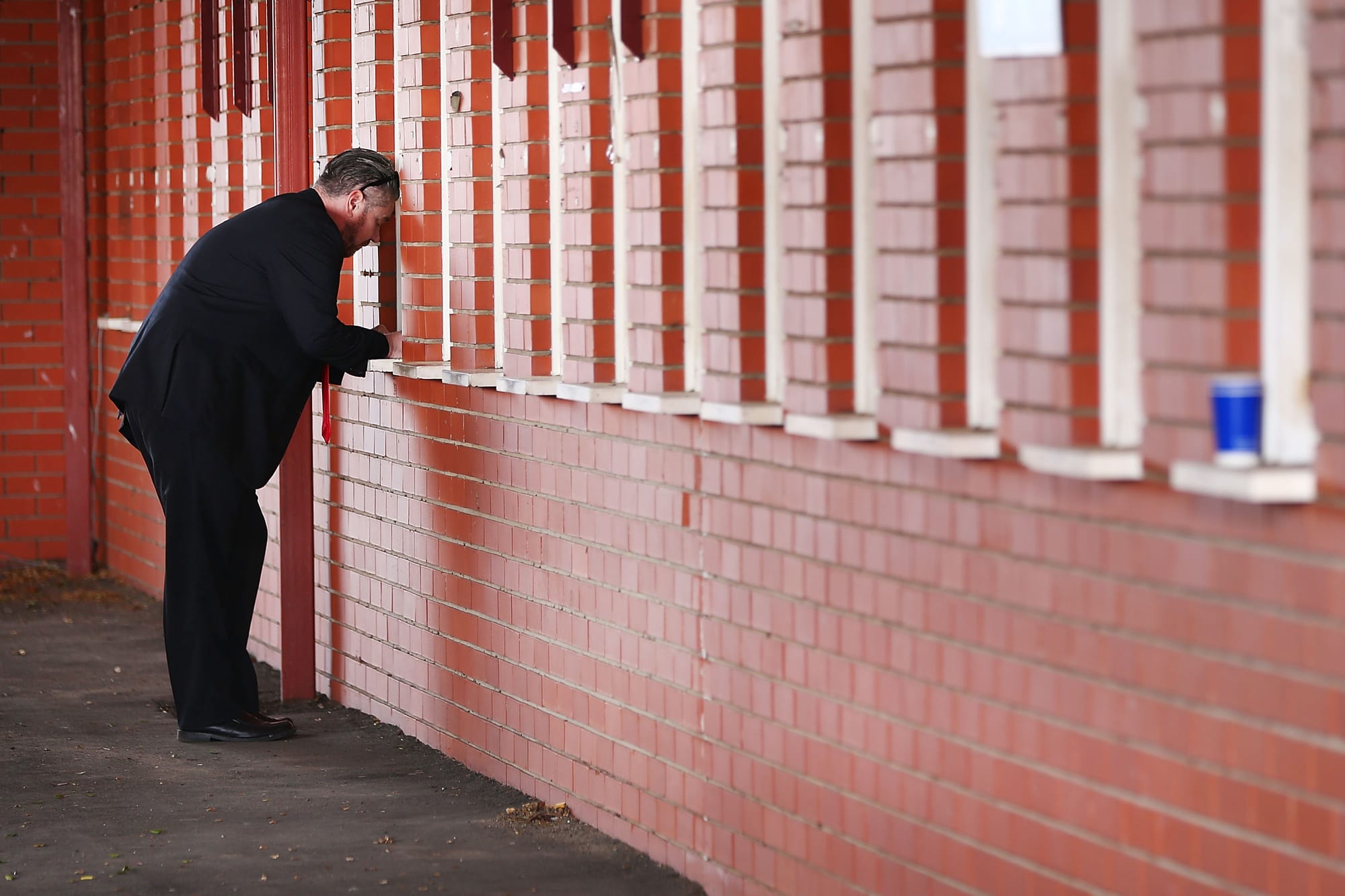
Scott is a genuine believer that exotic betting products, such as quinellas, trifecta and quaddies, present the greatest opportunity for growth in parimutuel pools.
“You’re (currently) seeing all these rogue dividends and the corporate bookmakers don’t know if that’s being created by punters and in a lot of cases it is, other times there’s just not enough liquidity there to fix it. So there’s money there, if the TAB gets that right, there’ll be more money also rolling through the corporates,” Scott said.
“This means more money coming back to racing, more opportunities for people to bet. This is one of the things that I said in Asia, you know, the big thing about the World Pool is, you know, it was a love-in there for the World Pool, that to me the takeouts are too big. They’re much bigger than the Australian tote.”
Scott said wagering providers and racing administrators needed to respect that it wasn’t just a battle for the wagering dollar, it was a battle for the recreational dollar which would determine future prosperity.
“This means more money coming back to racing, more opportunities for people to bet. “- Jason Scott
The other threats Scott sees are over-taxation from Point Of Consumption Tax and over-regulation when it comes to aspects such as advertising.
“I think it’s incumbent upon me and all of the other administrators in the country to work with the politicians for them to understand that we’re not alcohol and we’re not tobacco. You can’t just add another 5 per cent on every time you need to balance a budget,” he said.
“I think it’s incumbent on all of us in the industry to work to make sure that we’re still living in 30 years rather than worrying about short-term market share gains.”
He sees the current federal debate around gambling advertising as a crucial pinch point for the wagering and racing industry and one that it must fight to be heard on.
“The last 48 hours, I’m not sure it’s going the right way,” he said.
“There’s a lot of negativity about wagering coming out of the crossbenches and we need to make sure that we keep reminding the government that the racing industry across all three codes employs over 100,000 people.”
The Debate w/ Bren O'Brien @TheStraightX & @Racing_QLD’s Jason Scott
Asian Racing Conference,
National tote, POC & gambling advertising
Melbourne Cup Nominations
Text Messages
Listen below https://t.co/UjNCbG1Fmt pic.twitter.com/S08IzTWCTQ
— Giddy Up With Gareth Hall (@SENGiddyUp) September 4, 2024
Scott said there was a danger that wagering could be “legislated into silence” if generosities received a blanket ban.
“I understand that TV bans make sense. Not having logos on jerseys makes sense. Not having LED signs around grounds makes sense,” he said.
“The bookmakers and the PRAs don’t want to be advertising to those under 18, but we need to be allowed to speak as an industry to all of those who are over 18 and particularly those who have signed up to a betting operation and opted in.”
Scott said the time was now for a united push against those who wanted a blanket ban on gambling advertising.
“We need to all be completely united and push on this as hard as we can for the next two to three weeks until the result comes down,” he said.
“It will have short-term ramifications, but the long term is the biggest.
“If you’re not relevant, if you’re not there, if you’re not on social media, you don’t exist in today’s world. Racing already has a challenge. Sport doesn’t have this challenge.”


